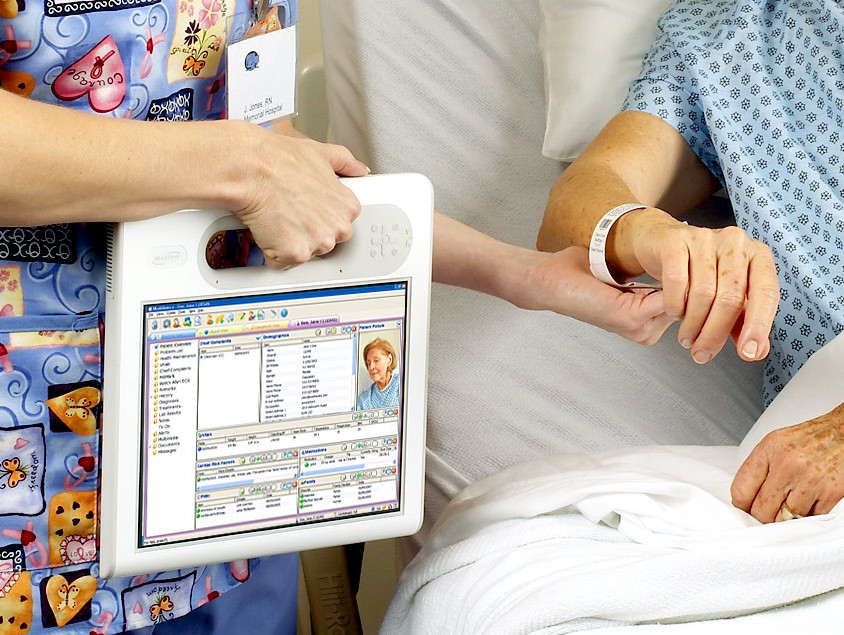Intel develops tablet PCs for nurses
Being tested at San Francisco medical centre

Trials of an Intel tablet PC specifically developed for nurses are currently taking place at the University of California San Francisco Medical Center ( UCSFMC ).
Intel is looking to expand its product line beyond the traditional PC, and has developed a mobile data-entry device intended to save nurses time during patient visits, and reduce human error.
Dubbed the Motion C5 , the tablet PC has a 10.4-inch LCD screen and has been manufactured by Intel and Motion Computing . Intel said it has adapted the technology to fit the medical workplace.
The nine computers involved in the trial will speed up the data entry process - nurses will no longer need to write notes down on paper and then type them into a computer later, for example. A UCSFMC spokesperson said up to 2.5 hours can be saved per patient using the Motion C5 computers, compared to making written notes. By cutting out a stage, the risk of human error is also reduced.
Windows XP
The tablet PC runs on Windows XP, which is standard in most hospitals, according to a UCSFMC spokesperson. It is the first tablet PC to be based on Intel's Mobile Clinical Assistant (MCA) platform.
The Motion C5 weighs about 1.4kg, and has a durable outer coating; it's been designed to absorb shock from drops and can be disinfected easily. The device also includes barcode readers, a 2-megapixel digital camera, and Bluetooth ports that allow the devices to receive information from monitoring devices such as stethoscopes.
No patient data is kept in the Motion C5 for security reasons. Instead it's beamed over a Wi-Fi connection to the hospital's general database as soon as a nurse hits the save button.
Sign up for breaking news, reviews, opinion, top tech deals, and more.
The Motion C5 can be used to scan the barcode on a patient's wrist bracelet to call up their medical record. The device uses radio frequency identification, or RFID, for security; nurses will need to wave a smart card over the computer for authentication.
Tracking
The RFID technology can also be used for inventory purposes, such as tracking medicines being used, and is to be rolled out at a London hospital in the coming months.
Intel, Motion Computing and UCSFMC executives described at a news conference how the new device could ease nurses' administrative workload, allowing them more time to spend with patients.
"This is about re-inventing the workflow and the systems to make the hardware work," Mark Laret, chief executive officer of UCSF Medical Center, said.
The Motion C5 project stems from Intel's digital health initiative launched 18 months ago as part of a strategy to focus on developing computers tailored for specific industries. By developing specialised machines, Intel hopes to build new markets outside of consumer and business PCs, an area that no longer still has the dramatic growth of the past.
"This machine was built for nurses and how they do their job day in and day out," said Paul Otellini, Intel's CEO.
The Motion C5 costs $2,199 (£1,126) and will be available in May.